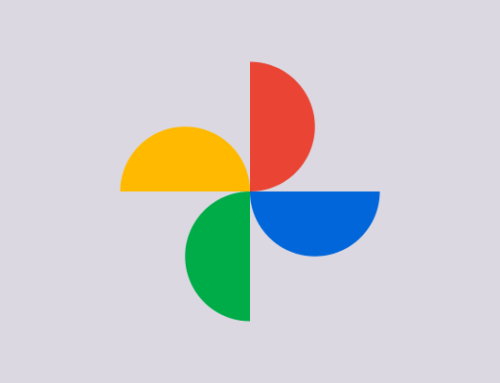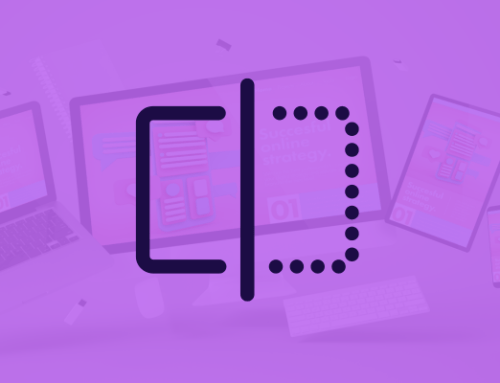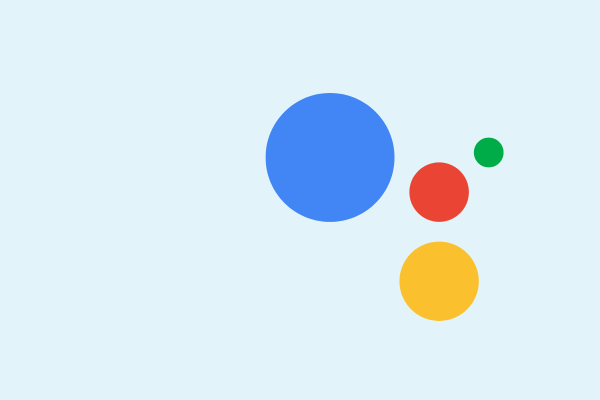
After RankBrain, BERT is the biggest update by Google Search and is likely to impact 1 in 10 search queries. The previous major algorithm update, RankBrain was introduced by the company around 5 years ago.
BERT stands for Bidirectional Encoder Representations from Transformers. It is Google’s neural networkbased technique for natural language processing (NLP) pre-training. BERT can help computers understand languages a bit more as humans do. In 2018, it was open-sourced by Google. Detailed information about BERT is provided in the Google AI blog.
The rolling out of BERT began earlier this week and it is likely to be fully live within a few more days. As of now, the feature is suitable for only English language queries, but shortly Google might try out other languages.
Google further revealed that BERT is being used globally in all languages in featured snippets.
Understanding the context of words in searches will help better match those queries with relevant results.
Examples of Google Search before and after the release of BERT.
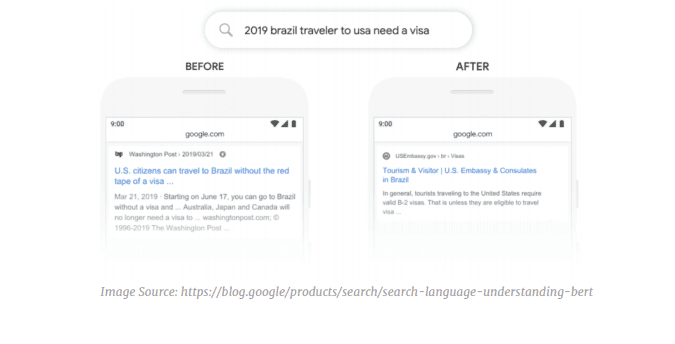
In one example, Google said, with a search for “2019 brazil traveler to usa need a visa” the word “to” and its relationship to the other words in query are important for understanding the meaning. Earlier, Google did not understand this connection between words and would return with results about U.S. citizens traveling to Brazil. Google further explained, “With BERT, Search is able to grasp this nuance and know that the very common word “to” actually matters a lot here, and we can provide a much more relevant result for this query.”
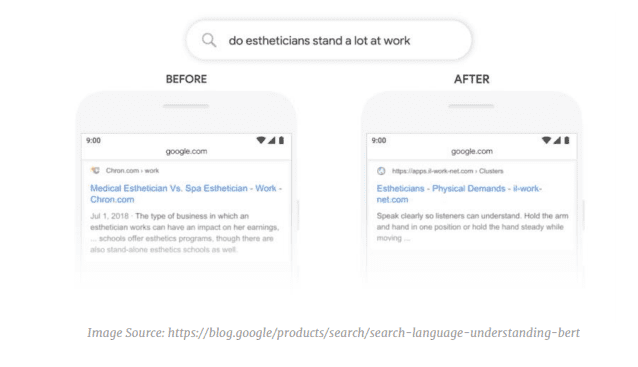
In yet another example, a search for “do estheticians stand a lot at work”, Google said it previously would have matched the term “stand-alone” with the term “stand” used in the query. Google’s BERT models can “understand that ‘stand’ is related to the concepts of the physical demands of the job, and displays a more useful response,” Google said. In the example below, Google can understand a query more like a human to show a more relevant result on a search for “Can you get medicine for someone pharmacy.”
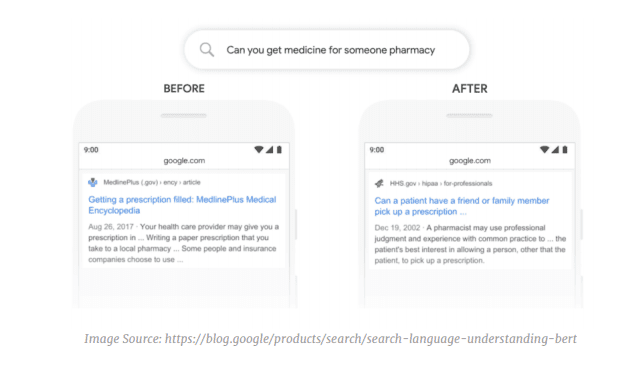
Here is an example of Google showing a more relevant featured snippet for the query “Parking on a hill with no curb”. Previously a query like this would confuse Google. “We placed too much importance on the word “curb” and ignored the word “no”, not understanding how critical that word was to appropriately respond to this query. So we’d return results for parking on a hill with a curb.”
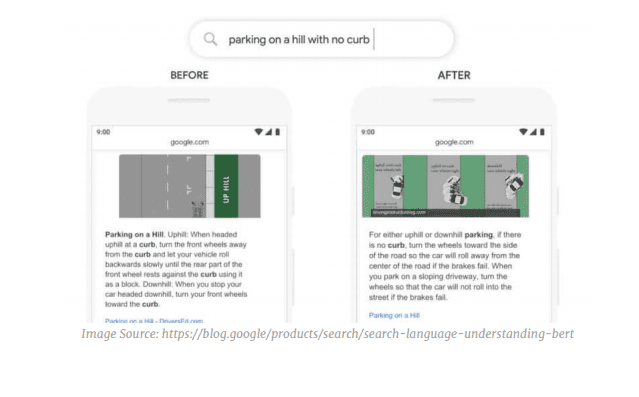
The first AI method for understanding queries, that Google introduced back in 2015, was RankBrain. To understand the meaning of the words, it looks at both – the queries and the content of web pages in Google’s index. It’s additive to Google’s ranking system. BERT is not a replacement for RankBrain, but an addition to Google’s methods for understanding content and queries. It will continue to be in use for some queries unless Google thinks a query can be better understood with the help of BERT. A single query can use multiple methods to understand the language including BERT.
Google utilizes a lot of ways to understand the language in your query and how it is relevant to the content on the web. In case you misspell something, Google’s spelling systems will help you get the right word that you would be looking for. Also, if you use a synonym that is there in its relevant documents, Google will still return with appropriate search results.
Optimizing for BERT is unlikely! Google already cleared that optimizing for RankBrain cannot be done, which only means that Google is improving at understanding natural language. Users can continue to create digital content as they always do.
Google said this change is “representing the biggest leap forward in the past five years, and one of the biggest leap forward in the history of Search.” This update has so far impacted 10% of all queries, which is a big change. However, after running reports for our clients, we have noticed that the rankings haven’t been affected at all – which isn’t surprising considering we do our basics well.
Final Takeaway
We recommend you to keep an eye on your search traffic changes sometime next week and check how much your site got impacted by the addition. If your search traffic seems to be affected, know which landing pages got impacted and by which query. And, if you need professional help – do get in touch with us for assistance.

